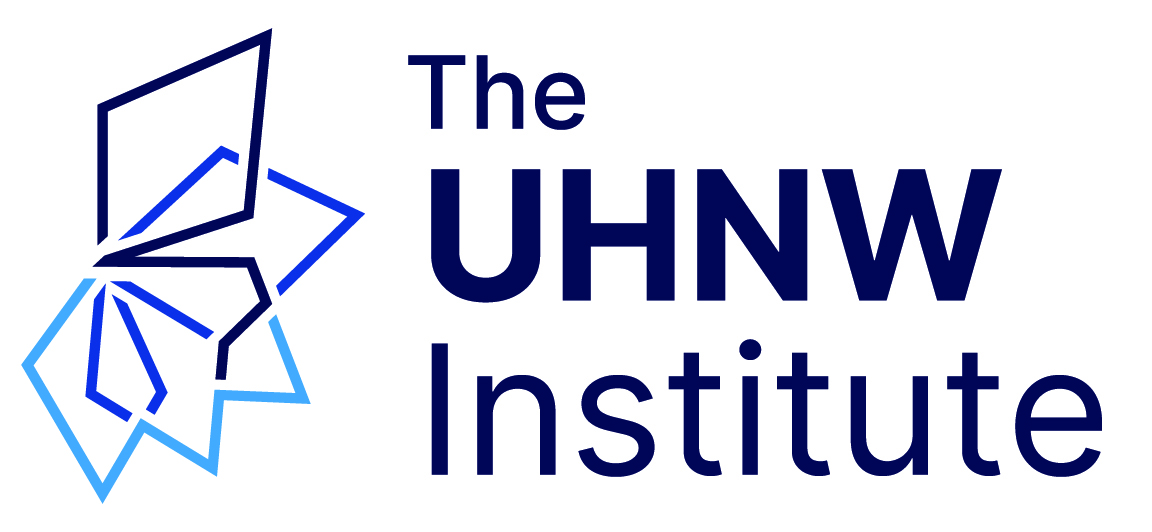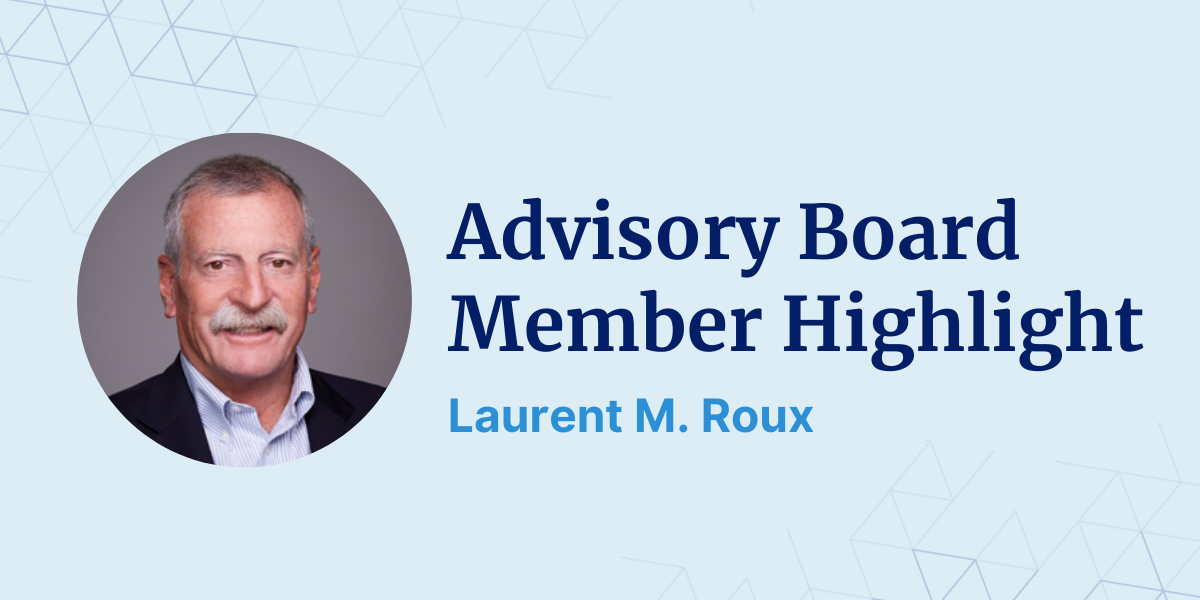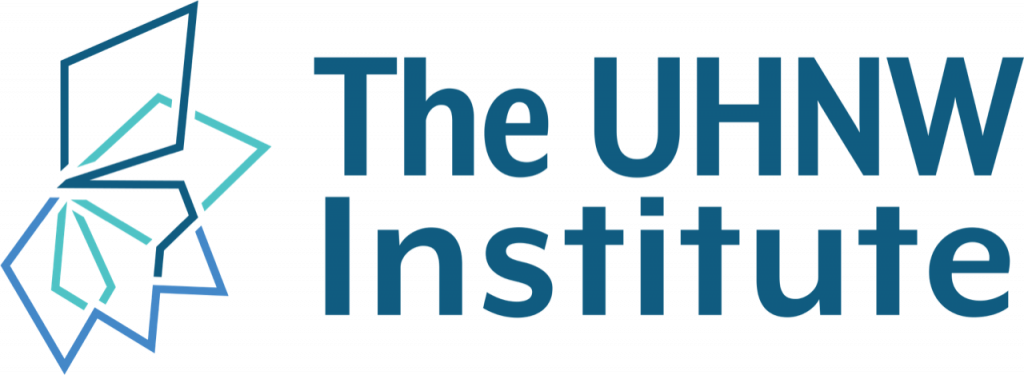Q&A with Laurent M. Roux
The UHNW Institute is pleased to feature our quarterly conversation highlights with Laurent M. Roux, an advisory board member at The UHNW Institute and the founder and CEO of Gallatin Wealth Management.
Laurent shares his thoughts on current changes and disruptions within the industry, emerging trends, the future of integrated wealth management and more.
- What’s your best advice to an emerging professional entering the field now?
Wealth management is broad and complex, it is rewarding, demanding, its about people more than technology, its about humility and having a learner’s mindset, indeed starting with a beginner’s mind enables the absorption of all there is to learn, self-reflection, insecurity, vulnerability, but enables one to discern what matters to them and where they would like to position themselves going forward. The critical success factor is gaining experience – as much as possible – seeking a mentor, understanding the competition at all levels, differentiating oneself, and contemplating what is wisdom and how is it to be deployed. Finally, people matter, respect for colleagues and loyalty are important, listening, critical to thinking and sharing. People are the differentiator; the “field” is about service to clients, leading from the front as well as the back, building real relationships, sharing credibility and honesty which builds trust – something to be earned.
- As it pertains to UHNW client needs, what are the most significant trends you’re seeing now?
How far our industry has come… from concepts, principals of private banking in the 19th Century, to traditional asset management, venture capital and private equity, alternative investing, to the commoditization of investing today and the myriad of challenges faced by firms, to taking another look at whom we serve and what matters to them. Wealth management firms are challenged by finding recruits who appreciate firm culture, who will be dedicated and committed rather than jump from job to job. They are faced with on-boarding recruits the goal of which is get maximum buy-in and represent the firm’s values, value proposition and commitment to serving clients. Remuneration, equity stakes (real or shadow), and respect for all firm members has many firms in reassessment mode. Leadership (top down and bottom,-up input), culture, functional integration (organizational inclusiveness, multi-disciplinary mindset, sharing, openness, team thinking), communications processes are all at issue. Insourcing and outsourcing, risk management, and cybersecurity risk appear top of mind. So is succession planning and the process needed to ensure future leaders will take their firm to greater heights. As for clients, the body of knowledge about investments or family is at the most sophisticated level ever. This is due to valuable research and practice, writings and communications of all types aimed at educating families (and advisors) over the past 25 years. They are familiar with key family capital concepts and processes, they look to their advisors to be more appreciative of this and more dynamic in their approach to serving them. Many seek to be learning families, are challenged by succession planning and family dynamics for instance, while many do not know what they do not know. The challenge for the advisor is how to generate what Jay Hughes has described as family affinity, how can the family flourish in the manner of its choosing ? Big question, demanding thoughtful and dedicated service from advisors.
- Tell us about the Institute’s role in the finance industry.
There is unequivocally a wealth of knowledge and experience at all levels in the Institute. Although very much a think tank sharing broad and practical experience, it is also a “do tank”. Thankfully so. Practice Groups covering a variety of issues raised by the Ten Domains, by firm and market challenges, by an intent to have members share experiences both good and bad, all underscore what it is indeed doing – bringing people together to discuss all matters important to the field. The Library is a wealth of knowledge which enables readers to learn and think through subjects important to them and the future of their firms. The Institute also supports firms and families by bringing together leaders in the field; it is a repository of collaborative, thoughtful, and experienced individuals to whom firms and families alike can look for help and guidance. And these same people have a multi-disciplinary mindset – collaboration – but also if they cannot be of assistance can refer others who will. Support of the changes needed to deal with the many current and future trends in the filed comes from thinking and doing, from proactivity, from listening, and bring new ideas. It’s leadership and it’s membership should all be involved and fear not thinking outside the box.
- Why did you join the Institute?
I joined because of the mission, the people, and its structure as a non-profit, differentiated from other organizations. A shared future for wealth management is about learning and sharing, respecting boundaries and knowledge (or lack thereof), it is about commitment to the field and all its “inhabitants”. Its also about its greatest asset – bringing people together, thinking and doing together, learning.
- Can you talk to us about the future of Integrative Wealth Management?
By definition this assumes integration as a functional part of the process of serving families. This foundation lays in multi-disciplinary thinking and behavior. The critical notion is collaboration. By analogy, several leading health care groups, eg Mayo Clinic, understood long ago that bringing medical professionals together to discuss a patient’s issues, needs etc was more efficient in terms of how to treat the patient and costs, than only one physician acting alone. Professional collaboration is teamwork. The rules of engagement include good communications among the team, developing time-frames for action, milestones, action plans, keeping family members informed, maintaining neutrality, managing perceptions, and proactivity. There are pitfalls to be avoided – its not about ego and self-aggrandizement, or competition for the “most trusted advisor role “, or over-extending one’s capabilities. Its about respect for peers, acting openly with a fiduciary mindset. Success factors include inclusive communications, mutual respect through actions, getting realistic results not seeking perfection, clarity of mission understood and appreciated by family members, generating trust among the professionals as well as the family, using power ethically, promoting involvement, and establishing rules of the road aka governance. A big challenge is profit-sharing, and more work needs to be done on this topic. There is no magic here, just a more dynamic approach to serving clients.


